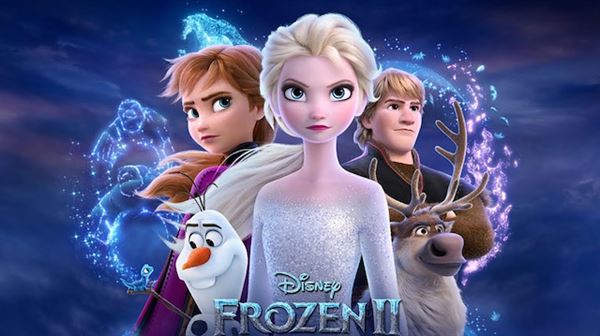The sequel to Walt Disney Co's 2013 hit animated musical "Frozen" is generating excitement among indigenous Sámi people in northern Europe, who
The sequel to Walt Disney Co’s 2013 hit animated musical “Frozen” is generating excitement among indigenous Sámi people in northern Europe, whose culture the movie has taken inspiration from.
“Frozen 2” debuted in U.S. cinemas on Nov. 22 and is progressively rolling out worldwide. On its debut weekend, it grossed $350 million, making it “the biggest opening ever for Walt Disney Animation (not including Pixar)”, according to Hollywood trade publication Variety. The movie opens in Norway on Christmas Day.
Norway inspired many elements of the first “Frozen” movie, such as character Anna’s dress or the architecture of the fictional kingdom of Arendelle.
The second film takes inspiration from the culture of the Sámi, an indigenous minority living across Norway, Sweden, Finland and northern Russia, who have faced discrimination against their language and culture.
In Norway, a state-appointed truth and reconciliation commission is investigating the discrimination perpetrated on minorities including the Sámi and Kven peoples.
“I am planning to see the movie again with my whole family,” said Aili Keskitalo, president of the consultative Sámi Parliament in Norway, who attended the film’s world premiere in Los Angeles with her 11-year-old daughter and set a scene from the movie as her Facebook profile picture.
“Frozen 2” sees Anna and sister Elsa head north of Arendelle to find out the truth about a mystery. They meet the Northuldra, who live closely with the reindeer. Reindeer herding is a traditional Sámi activity.
“Some of the beautiful costumes in the film took inspiration from our gákti. They also took inspiration from the guksi, our traditional wooden cup,” said Anne Lajla Utsi, a member of a Sámi advisory group that collaborated with the filmmakers.
“We felt they really listened and that it was very important to them to do this right,” Utsi, managing director of the International Sámi Film Institute, told Reuters.
Disney signed a contract with Sámi representatives to commit themselves to portray their culture respectfully. That included supporting the dubbing of the movie in North Sámi, the most spoken of the Sámi languages, and release it at the same time as the Norwegian version.
When Utsi posted a picture of the “Frozen 2” poster on Facebook with its Sámi title, “Jikŋon 2”, it went viral.
“My youngest daughter is really looking forward to watching the movie again in her language,” said Keskitalo.
“My elder daughters, who are 22 and 25 years old, are also very excited about seeing the movie. It is not often that we see a movie in North Sámi. I think a lot of adults will see the movie too.”
